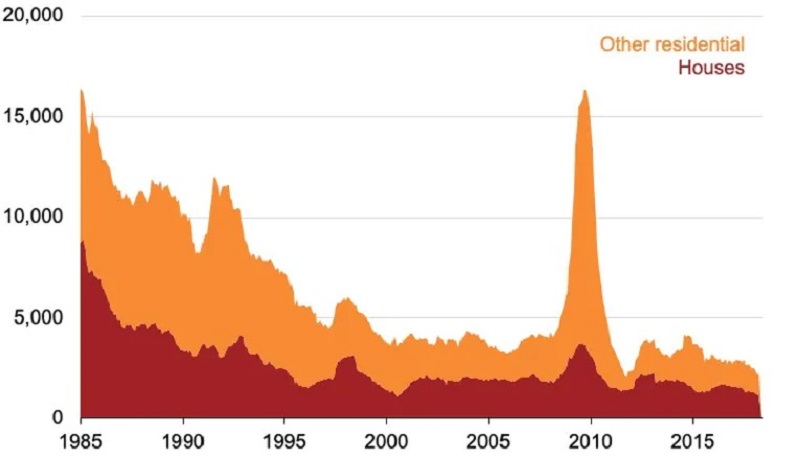WA Adds Bonus $444m to Home Builder Stimulus
Western Australia has announced a $444 million building bonus to help home buyers and revamp the state's multi-billion-dollar social housing portfolio.
The bonus adds to the federal government's home builder stimulus package, created in an effort to bump up the economy and residential construction industry.
For home buyers this means they would get up to $20,000 to build or purchase a new home by the end of the year or up to $25,000 off-the-plan duty rebate for multi-tiered developments under construction.
The state's package also included a $319 million social housing package—$142 million to refurbish 1,500 existing homes, $97 million to build and purchase approximately 250 new dwellings and $80 million to deliver a regional maintenance program to 3,800 homes.
This would improve the lifespan of the publicly-owned residential asset worth $14 billion by stripping 1,500 of WA's ageing housing stock back to the frames and rebuilding them.
The plan, scheduled for immediate rollout, was expected to support about 380 jobs over two years and a second stream of work would start in 2020-21 when social housing tenants affected by the refurbishments would be relocated to other state-owned properties.
The social housing was welcomed by Grattan Institute program director Brendan Coates who said it help those in need during Covid-19, boost the economy quicker than federal government stimulus and lead to a spike in approvals as seen after the GFC-era $5.2 billion initiative.
“The best Australian evidence and international experience shows social housing substantially reduces vulnerable tenants’ risk of homelessness. But our stagnating stock of social housing means there is little flow of social housing available for people whose lives take a big turn for the worse,” Coates said.
Corelogic head of research Tim Lawless said he expected the dwelling commencement, approvals and construction to improve in the state.
“Residential construction across WA has been trending lower since activity peaked in Q1 2015, watch the trends turn,” Lawless said.
Related: Waterloo Estate’s New 3000 Home Proposal
Total Public Sector Dwelling Approvals over 12 months

^Source: Grattan Institute, Australian Bureau of Statistics
Satterley Property Group chief executive Nigel Satterley also supported the state stimulus which adds to federal government's $25,000 home builder grant, as well as WA’s $10,000 first home owner grant.
“It shows the importance of the construction industry to the WA economy at large and for job creation,” Satterley said.
“Now more than ever it’s important to have a diversified economy that isn't just reliant on the resource and health sectors.”
Meanwhile local councils have fast-tracked $3.7 million in community projects funded by cash collections from developers.
Under the state's planning framework, developers progressing a subdivision were granted permission to provide cash payments to local governments for reinvestment in public open spaces, in lieu of setting aside land in a subdivision.
Six local governments have already been successfully approved for funds—$1.4 million for Gosnells, $1.2 million for Geraldton, $525,000 for Kalamunda, $444,000 for Wannerooo, $116,000 for Albany and $95,000 for Mundaring.
WA premier Mark McGowan said the residential building industry makes a significant contribution to the economy and community, so it's important they help protect, support and create new jobs in this space.
“This new major housing package will provide a much-needed boost to WA's economy,” McGowan said.
“It will provide a pipeline of work for WA building companies and local tradies, like bricklayers, plumbers, carpenters and painters, as we recover from the Covid-19 pandemic.
“The social housing component will also go a long way to helping those in need, get into a quality home.”
Housing minister Peter Tinley said protecting jobs during Covid-19 fallout was a serious matter.
“An estimated 66,000 workers are directly employed in the residential construction sector and many thousands more rely on the industry for their livelihoods,” Tinley said.
“The various elements of the social housing package are designed to provide opportunities for work—especially in regional areas—and help propel WA's economic recovery.
“It will also result in more liveable, modern homes for tenants and improve the overall lifespan of our social housing stock.”















